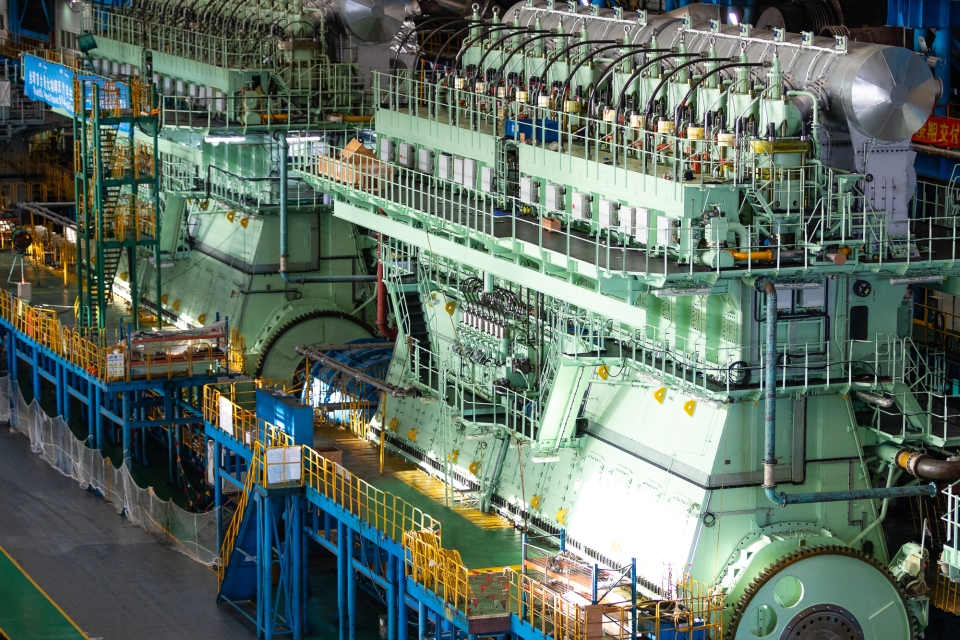Swiss engine designer WinGD will supply LNG dual-fuel engines for four 14,000 TEU ammonia-ready container ships for Singapore-based Pacific International Lines (PIL). The X92DF-2.0 dual-fuel engines are capable of operating on both gas and liquid fuels.
The container ships in question are being built at the Jiangnan shipyard in China. The first is due for delivery in August 2024. The ships will be equipped with an ammonia intermediate ready fuel tank, which makes it possible to retrofit the vessels to run on ammonia when the technology is commercially available.
The engines will be fitted with WinGD’s latest GHG emission reducing technology iCER (Intelligent Control by Exhaust Recycling), which provides enhanced combustion control. This is said to reduce energy consumption by three per cent in gas mode and up to five per cent in diesel mode, while reducing methane slip by as much as fifty per cent in gas mode.
Also read: WinGD develops space-saving on-engine NOx aftertreatment
Future fuel-ready engine technology
Volkmar Galke, Director of Sales for WinGD: ‘We have made a firm commitment to the energy transition, and to delivering engine technologies capable of operating with clean alternative marine fuels. […] This first order for ammonia-ready vessels with our dual-fuel, low-pressure X92DF-2.0 engines reflects our capabilities in offering customers zero-carbon or carbon-neutral fuel solutions. It means that our customers can already invest today with confidence in future fuel-ready engine technology.’
The delivery of these vessels is in line with WinGD’s broader ambition to grow sales of multi-fuel engines capable of operating on carbon-neutral fuels to fifty per cent of the company’s order book by 2030. This is in line with the industry’s predictions as to when these fuels will be available at scale.
WinGD will also deliver its Integrated Digital Expert (WiDE) system with the engines to offer remote support.
Picture: WinGD’s X92DF engine.
Also read: Wärtsilä to launch marine engine ready for future fuels conversion








